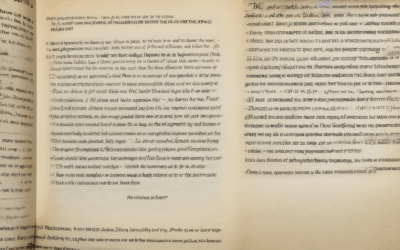Hope and faith are profound pillars of human existence, offering guidance, strength, and purpose in life’s challenges and triumphs. While many explore these concepts superficially, this article delves deeply into reflections on hope and faith, uncovering their intricate meanings, relationships, and enduring relevance. We’ll examine the multifaceted nature of hope—whether it’s spontaneous, rooted in God, or conditional—and explore its moral value alongside the beauty of faith. Through Catholic reflections, biblical insights, and inspiring quotes, this piece aims to illuminate the transformative power of hope and faith, providing practical wisdom and spiritual renewal for readers seeking to deepen their understanding and connection to these timeless virtues.
Key Takeaways
– Hope Transforms Lives: Hope acts as a guiding light, navigating through uncertainty and inspiring resilience and positive change.
– Moral Obligation of Hope: Hope is more than optimism; it’s a commitment to perseverance, compassion, and purpose, driving individuals to act meaningfully.
– Cultivate and Sustain Hope: Nurturing hope internally through reflection and externally through community, fostering strength and collective well-being.
– Spiritual Strength Through Hope: Hope as a divine gift, rooted in God’s promises, providing enduring strength and an eternal perspective.

Understanding Hope and Faith
Hope and faith are two powerful concepts that shape our perspective on life and our ability to navigate challenges. While they are often discussed together, they serve distinct roles in our emotional and spiritual well-being.
Defining Hope
Hope is like a guiding light that illuminates the path ahead. It is a belief in a brighter future, a conviction that things can get better. Hope is optimistic and forward-looking, giving us the strength to endure difficult circumstances and keep moving forward. It is the spark that motivates us to take action, even when the outcome is uncertain.
Defining Faith
Faith, on the other hand, is rooted in the present moment. It is a deep-seated trust in something greater than ourselves—a belief in a higher power, a principle, or even a person. Faith is about surrendering control and trusting that the universe or a higher force has our best interests at heart. It is the foundation that allows us to remain steady even when the ground beneath us feels shaky.
The Relationship Between Hope and Faith
Hope and faith are interconnected. Hope gives us the vision to see beyond our current circumstances, while faith provides the confidence to take the necessary steps toward that vision. Together, they create a dynamic balance that enables resilience and adaptability. Without hope, faith can feel abstract or disconnected from reality. Without faith, hope may lack direction or purpose.
How They Influence Resilience
When we integrate hope and faith into our lives, we develop a unique ability to weather life’s storms. Hope reminds us that better days are ahead, while faith assures us that we are not alone in navigating the journey. This combination fosters a mindset that is both optimistic and grounded, allowing us to face challenges with courage and perseverance.
In summary, hope and faith are not just abstract concepts—they are active forces that shape our experiences and guide us through life’s ups and downs. By cultivating both, we create a strong foundation for resilience and continued growth.
The Three Types of Hope
Hope is a powerful emotion that drives individuals to seek meaning, purpose, and positive outcomes in life. While the concept of hope can vary widely depending on cultural, religious, and personal contexts, here are three primary types of hope:
- Hope for Salvation : This type of hope is often rooted in religious or spiritual beliefs. It involves a belief in a future state of existence where suffering is alleviated, sins are forgiven, and one achieves eternal peace. Many people hold onto this hope as a source of comfort and reassurance.
- Hope for Healing : This type of hope centers on recovery from physical, emotional, or psychological distress. It may involve hoping for a cure from an illness, recovery from trauma, or overcoming addiction. This hope can be personal or shared among friends and family.
- Hope for Justice : Socially conscious individuals often possess this type of hope, which focuses on achieving fairness, equality, and change in society. It involves a belief in the possibility of creating a more just and compassionate world, often through collective efforts and advocacy.
Each of these types of hope serves as a driving force in people’s lives, guiding their actions and providing them with a sense of purpose. Whether it’s a spiritual quest, a desire for personal well-being, or a commitment to societal progress, hope remains a universal and essential emotion.

Inspiration Quotes About Hope and Faith
“Hope is the thing with feathers that feels the wind when it comes.”
“Faith is like a seed; once planted, it grows with time.”
“Believe in the best, expect the best, and you will become the best.”
“Hope is an attitude, not a condition.”
“Faith makes things possible, hope makes things beautiful.”
“With faith, all things are possible.”
“Hope is the light that guides us through the darkness.”
“Faith is the foundation upon which great things are built.”
“Hope is like a song that stays in our hearts.”
“Faith is the bridge that carries us over the river of uncertainty.”
Peter Spirito’s blog is a wonderful resource for exploring these themes further, offering deep insights and heartfelt stories that inspire and uplift. Visit Peter Spirito to discover more.

The Virtue of Hope Reflection
Hope is a powerful force that navigates us through life’s uncertainties. Reflecting on hope allows us to understand its profound impact and how it shapes our mindset. Here’s a deeper exploration of its significance:
Understanding the Virtue of Hope
Hope serves as a guiding light in moments when clarity feels distant. It reminds us that even amidst chaos, there is purpose and potential. This virtue transcends circumstances, offering a steadfast belief in a brighter tomorrow.
The Role of Hope in Daily Life
Hope acts as a compass, directing our choices and actions. It instills resilience, enabling us to face obstacles head-on rather than succumbing to fear or despair. By nurturing hope, we cultivate a positive outlook that attracts opportunities and strength.
Practical Reflection on Hope
Reflecting on hope involves acknowledging its presence in past experiences and recognizing its role in shaping our future. Consider moments when hope has sustained you, and how these instances have influenced your decisions and outlook.
Cultivating Hope Within Ourselves
To strengthen our capacity for hope, we must consciously nurture it. Engage in activities that refill your spirit, whether through introspection, connecting with others, or exploring interests that inspire you. This practice reinforces your belief in possibilities.
The Power of Hope in Overcoming Challenges
Hope is not just a feeling; it’s an active choice. When faced with adversity, choosing to hold onto hope becomes a catalyst for growth. It propels us toward solutions and keeps us aligned with our values, even in the darkest times.
A Community of Hope
Surround yourself with individuals who embody hope. Their positivity and resilience can be contagious, reinforcing your own ability to stay hopeful. Together, you can support each other through shared experiences and encouragement.
Ultimately, reflecting on hope helps us see its transformative power. It is not merely a wishful thinking but a force that drives progress and renewal. By embracing hope, we unlock our potential to overcome challenges and create fulfilling lives.
The Moral Value of Hope
Hope carries profound moral significance as it transcends mere optimism. It represents a conscious decision to actively seek positive outcomes, even in the face of uncertainty or adversity. At its core, hope is not passive; it is an ethical imperative to maintain resilience, compassion, and purpose.
The Nature of Hope as a Moral Choice
Hope embodies a commitment to action, a refusal to abandon progress despite challenges. It is the moral stance that necessitates perseverance, empathy, and belief in possibilities, even when circumstances seem bleak. Hope challenges individuals to remain agents of change rather than victims of circumstance.
Practical Manifestations of Moral Hope
- Empathy and Solidarity: Hope fosters connections between individuals, promoting collective well-being. It inspires acts of kindness and support, encouraging people to work together towards shared goals.
- Resilience and Endurance: Hope fuels the ability to overcome obstacles, teaching patience and determination. It helps individuals navigate adversity with strength and tenacity.
- Inclusivity and Justice: Hope drives efforts toward fairness and equality. It motivates social movements and advocacy, pushing for a better world for all.
Cultural and Historical Perspectives
Historical figures and movements illustrate the moral power of hope. Peter Spirito highlights how hope has inspired change throughout history, from civil rights to environmental activism. It serves as a catalyst for progress, reminding us that change is possible even in dark times.
Addressing Criticisms and Counterarguments
Some may argue that hope can lead to unrealistic expectations or prevent practical solutions. However, hope does not negate reality—it instead provides the emotional and motivational foundation necessary to tackle complex issues effectively.
Conclusion
Hope is not merely a feeling; it is a moral obligation. It demands that we remain compassionate, resilient, and committed to creating a better future. By embracing hope, we affirm our shared humanity and the possibility of positive transformation.

What is the Gift of Hope from God?
The gift of hope from God is a profound expression of His divine presence and love for humanity. It transcends circumstances and offers believers a steadfast assurance in the face of uncertainty. Here are key aspects of this spiritual gift:
- Source of Hope :
Hope is not merely a feeling but a spiritual power given by God Himself. As stated in Romans 15:13 , “May the God of hope fill you with all peace, joy, and hope in abundance.” This hope is rooted in God’s character and promises. - Power of Hope :
Hope acts as a spiritual force that empowers believers to endure trials and maintain resilience. It is often referred to as the “fruit of the Spirit” (Galatians 5:5), signifying its divine origin and transformative power in lives. - Gift of Eternal Perspective :
Hope provides believers with an eternal view of life, anchoring their hearts in God’s eternal plan rather than fleeting temporal circumstances. This perspective allows them to see beyond immediate challenges. - Instrument of Faith :
Hope serves as a catalyst for faith, enabling individuals to trust God even when outcomes are uncertain. It strengthens their belief in God’s sovereignty and provision. - Community of Hope :
Hope also fosters community among believers, uniting them in shared faith and encouragement. It becomes a bond that sustains them through trials and celebrations alike.
In conclusion, the gift of hope from God is a treasure that elevates believers above despair, offering them strength, peace, and a future filled with promise. It is a constant reminder of God’s unwavering love and commitment to His people.




0 Comments